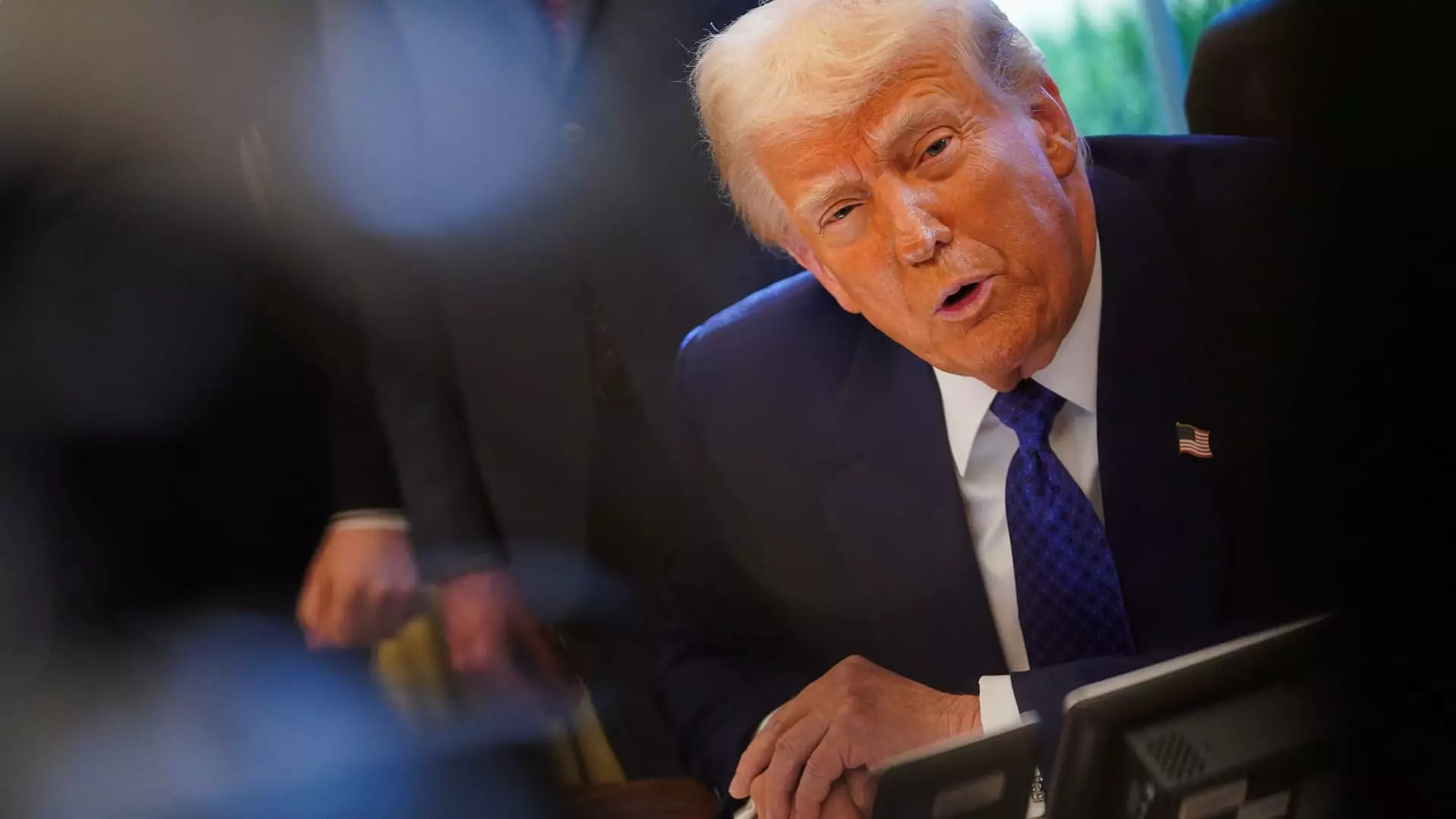The ongoing conflict in Ukraine necessitates an intricate web of alliances and negotiations. Recent developments have highlighted significant proposals from the Trump administration aimed at restructuring U.S. involvement in Ukraine, particularly concerning the country’s rich deposits of rare earth minerals. This article seeks to critically analyze the implications of these proposals and their broader ramifications for both Ukraine and the international community.
At the heart of the discussions between Ukraine and the Trump administration lies a troubling suggestion: granting the U.S. 50% ownership of Ukraine’s rare earth minerals. This proposal is intended as a mechanism for Ukraine to reimburse the United States for billions of dollars in military aid and support since the onset of the war in February 2022. Rather than a straightforward financial transaction, this sort of arrangement raises numerous ethical and diplomatic questions regarding sovereignty, economic exploitation, and the long-term independence of Ukraine.
Zelenskyy’s reluctance to sign the proposal reflects a significant concern. The Ukrainian leader emphasized the need for thorough scrutiny of an agreement that could dramatically alter the economic landscape of his nation. However, the willingness of U.S. officials to enforce such an arrangement under the guise of foreign aid is indicative of a more profound trend in international relations where power dynamics dictate the terms of cooperation.
Beyond the economic implications, the potential deployment of U.S. troops to Ukraine highlights the intersection of military strategy and diplomatic negotiations. Officials from the Trump administration signaled that American forces might be stationed in the country to protect these mineral resources if an agreement with Russia is reached. This proposition not only raises immediate security concerns but also embeds the United States further into the geopolitical conflicts inherent in Eastern Europe.
Defense Secretary Pete Hegseth’s assertion that U.S. troops are not part of security guarantees may offer a facade of reassurance, yet the reality that troop deployment is still “on the table” signifies a readiness to escalate military involvement if conditions are deemed unfavorable. Such declarations contribute to an ambiguous stance towards both Ukraine’s autonomy and the role of the U.S. in foreign conflicts.
Zelenskyy’s Balancing Act
President Zelenskyy’s recent actions further complicate the narrative surrounding U.S.-Ukraine relations. His need to consult advisors before making decisions regarding the ownership agreement indicates a cautious approach toward maintaining national integrity. In an environment where foreign support has become borderline critical for Ukraine’s survival, navigating these waters requires deft political maneuvering.
Zelenskyy articulated a poignant reality during a recent security conference: “we will have low chance to survive without support of the United States.” This statement underscores not just a dependency on U.S. military assistance but the broader implications of sovereignty when a nation is compelled to negotiate terms that may serve foreign interests over its own.
Trump’s Economic Interests
Former President Donald Trump’s remarks regarding Ukraine’s rare earth minerals reveal an economic motivation that intertwines with political expediency. His statement about securing up to $500 billion worth of these resources signals a transactional approach, where the geopolitical crisis becomes an opportunity for leveraging economic gain. This attitude aligns with Trump’s broader skepticism regarding foreign aid, as he has previously questioned the extent of American support to Ukraine, framing it as an instance where other nations exploit U.S. generosity.
His characterization of Zelenskyy as “the greatest salesman of all time” reinforces the notion that negotiation tactics and economic incentives are at the forefront of diplomatic relations—not purely altruistic support for a beleaguered ally.
As the situation in Ukraine evolves, the implications of the Trump administration’s proposals will undoubtedly shape the future of U.S.-Ukraine relations. The urgency for Ukraine to secure military and economic support must be balanced against the dangers of compromised sovereignty and the enterprises of foreign powers seeking to exert influence through economic control. President Zelenskyy’s decisions in the coming days will be pivotal, not only for the stability of his nation but for the broader dialogue on international cooperation in conflict zones. The stakes are high, and navigating these complex negotiations will be critical for all parties involved.

Leave a Reply